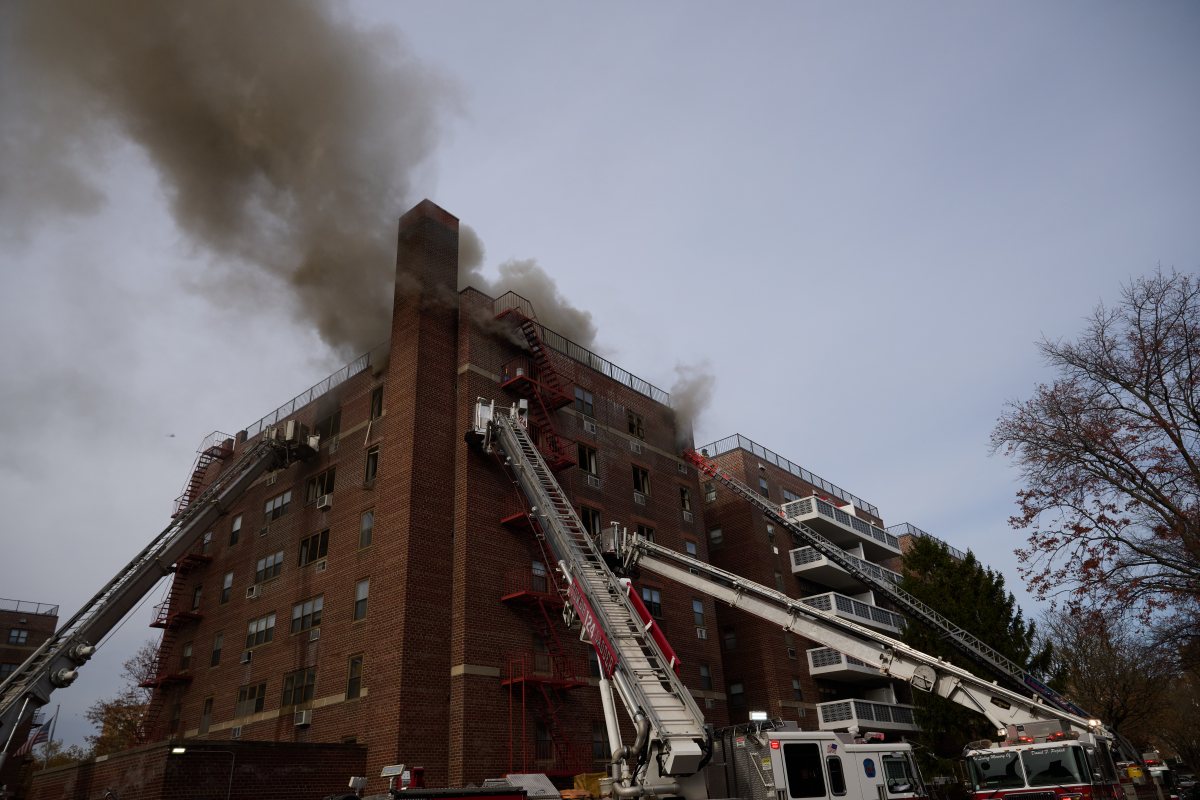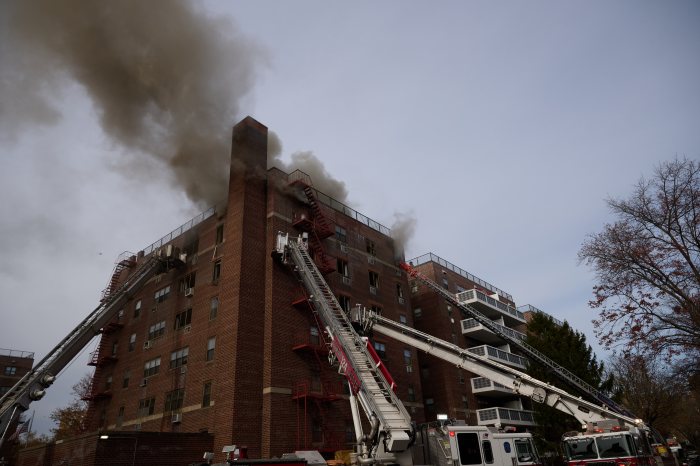By Aline Reynolds
Soho residents and property owners packed the basement of St. Anthony’s Church Tuesday night to rail against the proposed business improvement district planned through the heart of their neighborhood on Broadway.
“There are no French sound-and-light shows, or no slideshows — this meeting is really about answering your questions,” said Barbara Cohen, a planning consultant representing the BID at the meeting organized by City Councilmember Margaret Chin.
The BID’s steering committee, Cohen said, drafted a proposal that reflects the interests and concerns of all stakeholders in the district, and not just commercial property owners.
“What we’re saying to residents is, we’re willing to put $700,000 of our own money into this district, and we’re asking the residents to join us in deciding how it’s spent,” said Brian Steinwurtzel, co-chairperson of the BID steering committee.
The business improvement district, which the City Planning Commission approved unanimously in late January, would stretch along Broadway between Canal and Houston Sts. Its bylaws would be created if the BID is enacted into law, which is now contingent on approval by the City Council, where Chin, who represents the Council district, presumably holds the power to make or break the proposal.
“We think that’s a good thing for them and for us,” Steinwurtzel added of both the property owners and residents.
The BID, Steinwurtzel stressed, would do more than merely pick up the slack from the Association of Community Employment Programs for the Homeless (ACE) in collecting litter on Broadway. (ACE will be discontinuing its Broadway sanitation services at the end of June due to funding shortages.) The BID would also decrease overcrowding and illegal street vending and help improve communication between the neighborhood’s two police precincts.
Another crucial service the BID would provide, Cohen added, is technical assistance to property owners who must adhere to city-enforced landmark requirements when making building renovations.
What was supposed to be a question-and-answer forum following the BID organizers’ introductions quickly turned into a free-for-all, in which audience members repeatedly spoke out against the BID. Some implored Chin not to vote for it when the proposal comes before City Council.
“I see absolutely nothing here that we need or we could use,” said a woman who gave her name as Patricia. “When you hear capital improvement, you gotta run,” she said, referring to the $45,000 in funds the steering committee has proposed to allocate for this category.
Jason Adams, who lives in the BID’s catchment area on Broadway, said he has not been given any convincing reason to vote for the BID
“There are no bylaws — we’re voting on a blank check,” he said. “It’s a distraction for us to support someone’s salary.”
The opponents’ main objection to the BID is the additional taxes that would be imposed on Broadway property owners, which they fear would translate into hiked maintenance fees. Many believe it’s a tactic to privatize public services — hence, a form of “taxation without representation” — and that the BID would only benefit commercial property owners, which would finance 90 percent of the organization’s annual budget.
Carl Rosenstein, who owns the Puffin Gallery at 435 Broome St., deemed the BID un-American.
“It’s quite outrageous to have these people come in here and say they’re going to form a government and tax us,” he said. “It deserves a challenge in court. We have to fight this tooth and nail.”
Broome St. resident Lora Tennenbaum questioned the unequal voice that condo and co-op residents would have in the BID’s decision-making.
Steinwurtzel, however, explained that, while it’s true that the voting power wouldn’t be equal between tax lots, it would be fairly distributed among buildings in the catchment area according to their assessed value.
The sole advantage many residents feel the BID would provide is sanitation services.
“If sanitation is the issue, let them hire people to keep the streets clean the way ACE does, and leave us alone,” said Ingrid Wiegand, who lives at 48 Grand St.
“I’d be willing to work with ACE to figure out how to better market their services and put shame on those that don’t support them,” chimed in Grand St. resident Sharon Livesey.
Business services, she pointed out, could be accommodated via a newly created business association or another community group.
A few community members in attendance actually had questions about the program.
“Tell me what you’re going to do about the traffic that comes to your BID,” said Greene St. resident Victor Schwartz.
The BID’s board of directors, Steinwurtzel replied, would work with the city’s Department of Transportation to install traffic lights, stop signs and other street signage, as deemed necessary.
Residents and some property owners also fear that, once the BID is in place, there would be no turning back. The BID’s board of directors could, in fact, vote to dissolve itself, but that has never happened in the history of BID’s in New York City, according to Chin’s Office.
And the thought that the BID could eventually expand into the rest of Soho, and even Nolita, is troublesome to many.
The few community members who defended the BID argued that its services, including sanitation, are crucial for the maintenance of a thriving neighborhood.
“The city established BID’s for good reasons — for property owners to unite together to enhance the services of the community,” said Soho property owner John Pasquale, a BID steering committee member.
“If ACE discontinues services in June, what’s going to happen then when all that trash is blowing over in the streets?” said BID supporter Donna Vogel.
“There would be a tremendous amount of garbage all over the place,” said ACE founder Henry Buhl.
“Politically, I think if you vote for this, Ms. Chin, I’m going to do my best to make sure you’re not re-elected,” warned Broadway resident Bob Seidman.
“That’s what you think,” Chin said somewhat softly, so that most probably didn’t hear her.




































